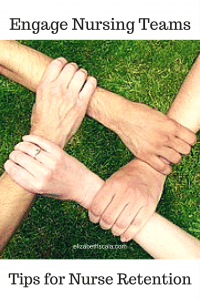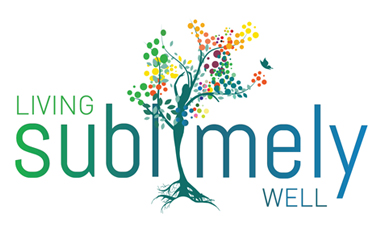In email marketing, a common strategy used to tap into your market’s wants and needs is to ask this question: ‘What keeps you up at night?’ Imagine if this question was asked of nursing leadership. ‘When it comes to your nursing staff, what’s the one thing that keeps you up at night?’ While there may be an interesting variety of responses, I would like to suggest one that tops the list:
“Retaining my staff.”
 Further, retaining quality nursing staff. Keeping my staff happy, healthy and engaged. Because we know that a satisfied employee equals satisfied patients. To take this one step further- nurses significantly impact hospital outcomes, according to a study published in Health Care Management Review.
Further, retaining quality nursing staff. Keeping my staff happy, healthy and engaged. Because we know that a satisfied employee equals satisfied patients. To take this one step further- nurses significantly impact hospital outcomes, according to a study published in Health Care Management Review.
So it would seem crucial to keep good staff. In fact, these nurse authors in England encourage we pay as much attention to the nurse’s experience as we do the patient’s. They describe the notion that an employee who is engaged with their work is more likely to show up, stay committed and perform better. When nursing staff feel satisfied with their work environments they form a bond. This relationship creates a sense of obligation to the workplace. Nurses feel reconnected to the profession and are happy to come to work.
If we know this intellectually, I would suggest there is a deeper question that arises, which I will get to in a moment. Before I do, I want to point out the severity of this topic of satisfaction and nursing engagement. Researchers in Canada found that brand new nurses with an “average years of nursing was 1.04, the emotional exhaustion average was 2.90, meaning that they are already approaching severe burnout”. This team was especially interested in new graduate nurses as they were studying the impact that authentic leadership had on burnout, bullying and retention.
Let’s get back to our core question eluded to above. Intellectually we can agree that nurse satisfaction and engagement impacts retention. We see this as crucial to retaining quality staff. So the question arises: what do we actually do about it? I’d like to offer some support to nursing leaders below.
[Tweet “Here Are 3 Tips to Greater Nursing Staff Engagement”]
- Leverage Strengths. In my years of working with hundreds of nurses, both on and offline, I have noticed a common theme. Because of our nature to care and support… at times, we try to do it all. And fail. Sure, a nurse can come up with a handy workaround and perform the role of everyone on the healthcare team. But is this a good thing? Yes, we want our nursing staff to be skilled in many domains- AND what if you tapped into the individual strengths of each employee? As unique human beings, each nurse has certain qualities or traits which they excel in. In order to engage and retain the best staff, tap into these assets. If a nurse has an outgoing personality and loves to teach, utilize these skills in an educator role. Ensure each nurse is in the position that allows you to leverage their strengths. This will be good not only for the organization as a whole… it will energize each individual nurse on your team.
 Provide Value. Nurses are smart people. Very smart, actually. And what I have seen is that when simply told what to do without the reason ‘why’ behind it, nurses push back. Or if we provide monotonous training that does not simulate the lifelong learner, we receive poor attendance and engagement. It’s important to figure out what your nursing staff finds interesting. Ask them what they want to learn about. Provide valuable opportunities that can support their professional development and personal growth. And sure, the budget is something to consider here. However, here is a chance to get creative and have some fun testing innovative approaches!
Provide Value. Nurses are smart people. Very smart, actually. And what I have seen is that when simply told what to do without the reason ‘why’ behind it, nurses push back. Or if we provide monotonous training that does not simulate the lifelong learner, we receive poor attendance and engagement. It’s important to figure out what your nursing staff finds interesting. Ask them what they want to learn about. Provide valuable opportunities that can support their professional development and personal growth. And sure, the budget is something to consider here. However, here is a chance to get creative and have some fun testing innovative approaches!- Cultivate Relationships. Now depending on the size of your organization, this may seem overwhelming and unlikely. However, getting to know as many of your nurses as possible is imperative. It makes the nursing staff feel important and valued. And it’s a great way to tap into individual strengths, as mentioned above. Growing your professional network doesn’t have to stop at work. Attending conferences, growing your LinkedIn connections or being active in nursing associations are all great ways to increase visibility. Think about it- what do nurses love to do with their patients (when they have time)? Get to know them! Talk and teach. Answer questions and build rapport. Do the same with your nursing staff and your team will experience greater engagement.
I’d love to hear from our readers. What tips above have you tried and what was your experience like? What are some other suggestions you can add to this list? Please share a comment below so we can support each other in engaging and retaining quality nursing staff.
About the Author: As a keynote speaker, bestselling author and virtual conference host, Elizabeth partners with hospitals, organizations, associations, and nursing groups to help transform the field of nursing from the inside out. During the National Nurse’s Week online conference, ‘The Art of Nursing‘, Elizabeth supports nurses in achieving professional goals of continued learning and development. Click here to find out more about how The Art of Nursing appreciates and celebrates our profession in a meaningful way.

Relationships do matter. Transparency starts with building relationships that have meaning!
This is a win win for nurse leaders!
Thanks so much, appreciate your comments and share!
I love the way you present an issue and give tips for it
Thanks, Maureen!
Your post made me think of the song “Getting to know you…getting to know all about you”. What a great way to build and retain a team!
Wonderful, Donna. Thanks so much!
Yep! You nailed it. Leveraging strengths and creating relationships speaks volumes and is ‘critical’ to keep nurses and prevent the all too common burn out syndrome.
Thanks, Annette!
Elizabeth,
I totally agree with the nurse author of England, who encourage we pay as much attention to the nurse’s experience as we do the patient’s. It’s interesting that most hospitals and employers of nurses don’t make this a priority or even address it at all. I think the 3 tips you give are great and should be shared with hospitals and organizations. A happy satisfied nurse makes for better outcomes for the patient and for the organization.
Awesome, Cassandra. So glad that you enjoyed the post and the tips. Thanks for commenting and feel free to share.
A great post which needs shared far & wide! I especially loved your point about getting creative about professional development & personal growth! With all the digital tools we have at our disposal…why not involve teams? First, share info about applying digital tools. Second, what about teams of nurses themselves being empowered to create something fun using their new found ‘digital skilz’?
Totally agree, Carol. Thanks for the comment. In fact, The Art of Nursing program hosted during Nurse’s Week each year does just that. I not only send the information to the nursing executives, but I offer fun and creative ways for nurses to get involved. It is such an empowering process… to bring these new skill sets to the workplace. Thanks for stopping by!
The topics of nurse job satisfaction, effective corporate management of resources, and even “nurses eating their young” has reached my professional radar. I know from personal experience that new nurses are too focused on figuring out their routines, as well as building their skills set and working on time management. I am coming up on three years as a nurse, although I have been in the workforce for several decades (unlike many of my peers in school).
I am gaining the ability to step back and take in larger dynamics at play. Past work experience, in my opinion, has given me some perspective into this very issue.
One of the biggest issues that drives the work environment is the tone set by the management. This is true of ANY profession. Managers provide and control resources, delegate work, oversee progress, assess and set goals towards improvement, and – if they are really good – advocate for their subordinates. However, as the human condition can be rather fickle; so, too, can the ability and skills of a manager. Just a great manager elevates issues, offering transparency to upper management; bad managers manipulate, distort, or obscure issues. Bad manager are not transparent. They enjoy their power, emphasize its uses over others that challenge them, and target people – or support a negative environment. An environment of fear, intimidation, and manipulation set the tone for a “catch you at doing something wrong” theme. Behavior redirection is done publicly, in front of peers, as a show of power….as well as humiliate, kill morale, generate fear, and make you feel hollow – after a certain point. What makes this dynamic sad is that nursing includes the art of healing and reaching out to others, which goes beyond intellectual dissonance.
There is no personal or professional growth. There is no education. Problems are not seen as opportunities. They are seen as reasons to punish. And worse yet, these toxic environments make you hate what you do. New nurses fall out of the system. Experienced nurses find new work elsewhere, retire – or worse yet – succumb to the burnout and become bullies themselves. Some nurses even succumb to drug/alcohol use or become suicidal.
Luckily, I enjoy working with a great, professional, experienced group of nurses and support staff that appreciates and celebrates teamwork, empathy, and dedication to the healing arts we call nursing. I am not any closer to finding any answers, but I am glad to see that it is being addressed in discussions like these. As I pursue my RN-to-BSN, I may try to work this data into a research paper.
Nice blog!
-Drew
Hi Drew,
Thanks for coming by and taking the time to read and comment on the blog. It is great to hear of your experiences and it helps other nurses read of your insights. I do agree that an effective manager can make or break the workplace. And if we find ourselves in less than ideal conditions, we can step up and make a decision for change. Maybe it may mean a new job… we have to do whatever is right for us at the time. Thank you for sharing the traits and skills that make a good manager with our readers. We can all strive to work to our best. Congratulations on all of your achievements as a newer nurse and many more years of success to you!
Enjoy the day,
Elizabeth